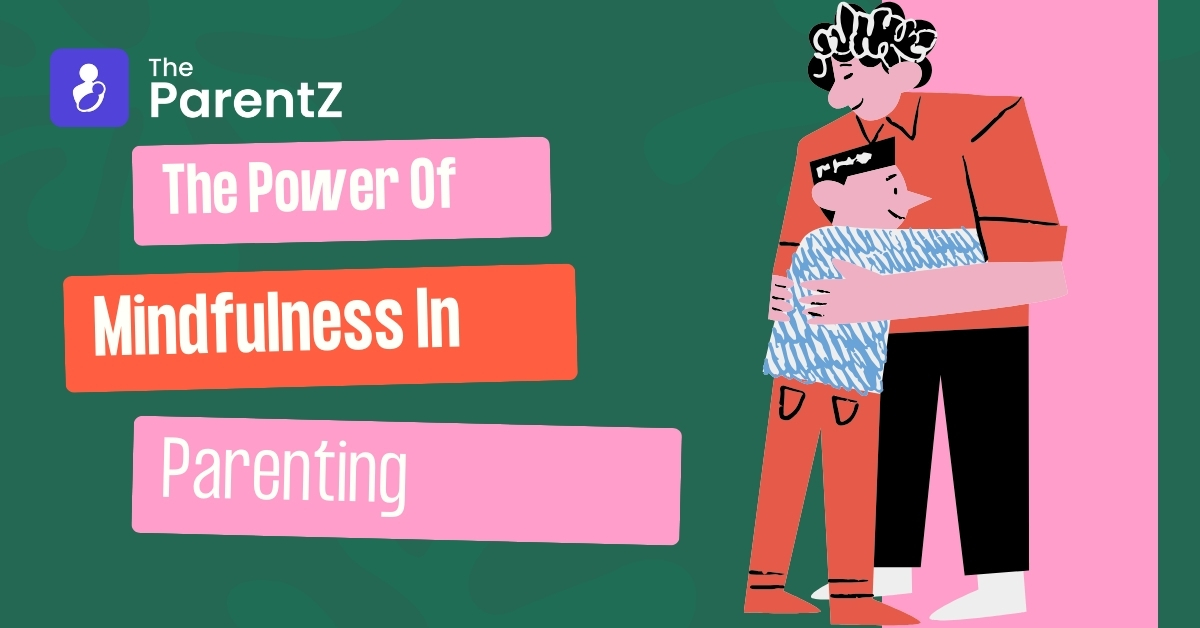Introduction
Parents often picturize what perfect parenting would be like. However, parenting is never easy and certainly never perfect. Parenting is like a roller coaster ride full of ups and downs, where parents strive to put in their best efforts to prepare their little ones for a better future. On this journey, it’s quite common to get stressed out.
In fact, according to a report, four out of ten people believe that parenting is stressful and doesn’t seem to get any better. From managing the household to managing kids and work, parents can feel overwhelmed at times. However, practicing mindful parenting will not only help you have a sense of calm and positivity in your life but will also help in building resilience.
Read below this article to learn about what mindful parenting is and what the key benefits of mindfulness are in your and your kid’s lives.
Mindful Parenting: An Overview
Mindfulness in parenting doesn’t mean meditating or becoming the perfect parent at all times. Neither does it mean you can never get frustrated. It simply means the practice of calming yourself down and building resilience so you don’t respond harshly to your kids during stressful situations. Besides, it will give you a sense of control and make your kids feel safe.
Mindful parenting involves focusing on the present and slowing things down. This will not only let you deal with your overwhelming emotions but will also help you be gentle with yourself.
4 Effective Tips for Mindful Parenting
The truth is, parenting is stressful, and it is normal to get burned out. However, with some effective tips and techniques, you can easily deal with such situations. Read below to find out how you can practice mindful parenting.
1. Be actively present
Giving your children your complete attention and being present for them in the moment is an essential aspect of mindful parenting. Engaging in the moment fully with your kids will give them a supportive environment for growth and development. Being actively present not only includes your physical presence but also your emotional and active mental presence. Moreover, it is equally necessary to listen to your child carefully when he tries to express his feelings.
2. Patience is the key
It is normal for kids to make mistakes and learn new things in their process of growing. Therefore, it becomes important for parents to understand that changes and lessons are a part of life and that you should encourage your kids to learn at their own pace, which is far better. Besides, be ready to help and support them rather than feeling frustrated or judging your kids if they make mistakes.
3. Practice Mindfulness
Kids generally follow what they learn from their parents. Hence, practicing mindfulness is a great idea to instill this practice in both yourself and your kids’. Slowing down when you feel stressed or appreciating even the smallest things are some of the few examples of mindfulness.
4. Acceptance and appreciation
Lastly, acceptance is an important part of mindful parenting. Learn to accept your child’s boundaries, his skills and talents, his pace of getting things done, etc. This means not rushing your kids and helping them become the best versions of themselves. When it comes to appreciation, it means appreciating his commitment, individuality, and other little things you think should be encouraged.
Benefits of Mindfulness in Parenting
From deepening a parent-child relationship to fostering positive behavior in your kids, the benefits of mindfulness in parenting are many. Read below to find out some of the benefits of mindful parenting.
Improved parent-child relationship
It is a fact that relationships where trust and participation are involved tend to become more cherished and understood. Thus, one of the key benefits of mindfulness for kids includes deepening your relationship with your little one and your partner as well.
Parental Self-Care
It is important to understand the role of self-importance and self-care. Accepting yourself will help you handle the negative emotions in you. Parents who are self-aware are often more calm and caring than others, which eventually helps their kids adopt the same good habits in their lifestyle.
Less Stress
Managing stressful situations with calm and patience can effectively relieve you of unnecessary stress and help process negative emotions. Showing empathy, kindness, and understanding will make it easy for you to deal with such situations without losing control. Moreover, building resilience also helps your kids regulate their emotions instead of giving harsh responses in similar situations.
Positive Behavior
It is a fact that kids who have a supportive environment at home and a healthy relationship with their parents portray a sense of kindness and empathy. Furthermore, accepting your child’s traits and appreciating them will inspire him to adopt positive behaviors.
Conclusion
Though there are moments during parenting when you might feel frustrated, mindful parenting is a good idea to regulate your overwhelming emotions. Though parenting can never be easy, it can definitely be made easier with a few tips. It simply begins by practicing patience and being actively present for your kids. This practice doesn’t demand perfection; rather, it focuses on the efforts you’re putting in to give the best to your kids.





Be the first one to comment on this story.